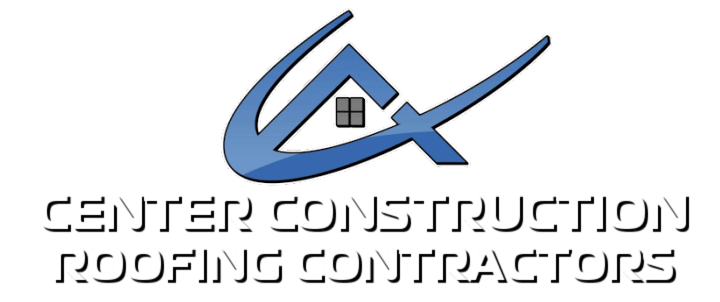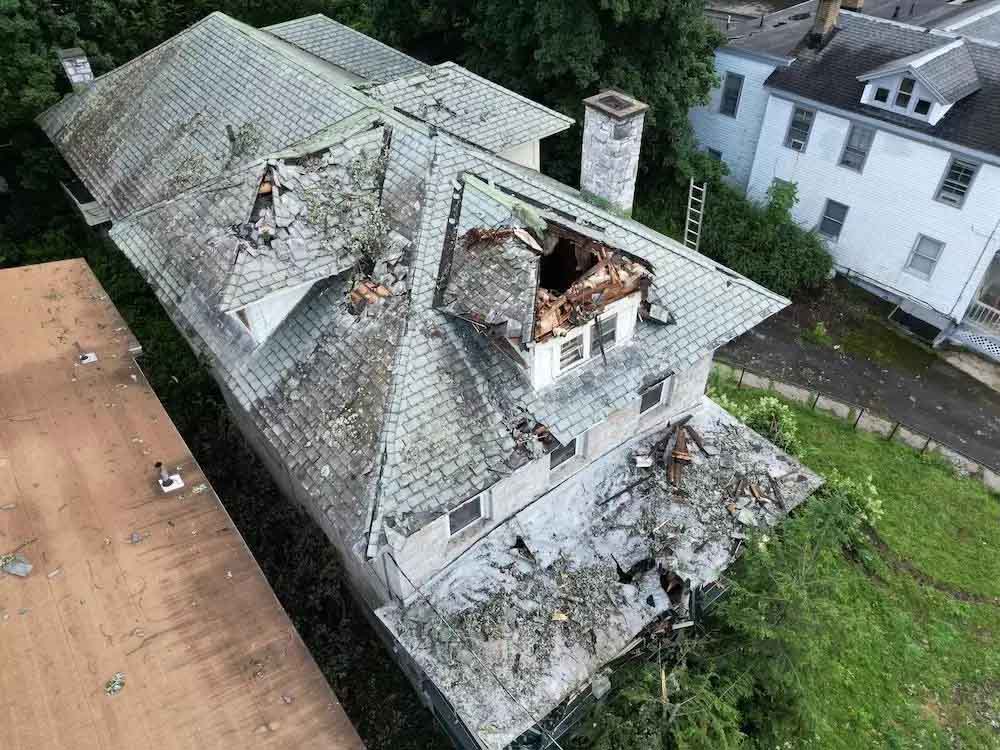When severe weather strikes, your roof serves as the first line of defense against nature’s most powerful forces. Tornadoes generate winds exceeding 200 mph, creating uplift pressures that can tear conventional roofing systems apart in seconds. Choosing the best roof for tornado protection isn’t just about durability—it’s about safeguarding your family, possessions, and investment. Understanding which roofing materials and designs can withstand extreme wind forces empowers homeowners to make informed decisions that could save lives and property.
While tornadoes can occur anywhere, certain regions face higher risks. Albany, NY, and surrounding areas experience severe weather patterns that demand robust roofing solutions. Center Construction LLC specializes in installing tornado-resistant roofing systems designed to protect homes throughout Albany and neighboring communities. With expertise in residential roofing, commercial applications, siding, and gutter systems, their team understands the unique weather challenges facing New York homeowners.
Why Roof Design Matters in Tornado-Prone Areas
The shape and pitch of your roof significantly influence its ability to resist tornado-force winds. Aerodynamic designs minimize wind resistance and reduce uplift pressure:
- Hip roofs with four sloping sides perform better than gable roofs by deflecting wind from all directions
- Steeper pitches (4:12 to 6:12) allow wind to flow over rather than under the roof structure
- Shorter overhangs reduce the surface area where wind can create leverage and pry the roof upward
- Multiple roof planes distribute wind loads more evenly across the structure
Understanding these architectural principles helps homeowners select not just materials, but the overall roof configuration that maximizes tornado protection.
Top Roofing Materials for Tornado Protection
Metal Roofing: The Superior Choice
Metal roofing stands as the gold standard for tornado resistance. Standing seam metal roofs feature interlocking panels that create a continuous barrier against wind infiltration. The metal’s inherent strength and flexibility allow it to bend without breaking under extreme stress.
Key advantages include:
- Wind resistance ratings up to 140 mph when properly installed
- Interlocking panel systems that prevent individual component failure
- Lightweight design that reduces structural load
- 40-60 year lifespan with minimal maintenance
For homeowners seeking maximum protection, standing seam metal roofs offer unparalleled performance in severe weather conditions.
Concrete and Clay Tiles: Heavy-Duty Protection
Concrete and clay tiles provide exceptional weight and density that resist wind uplift. Individual tiles interlock and are secured with multiple attachment points, creating redundancy that prevents cascading failures.
These materials excel in tornado zones because:
- Individual tile weight (8-15 pounds) resists wind uplift forces
- Interlocking designs prevent wind from getting underneath
- Impact resistance protects against flying debris
- Fire-resistant properties offer additional protection
Asphalt Shingles: Affordable Resilience
Modern architectural asphalt shingles have evolved significantly, with many products now rated for winds up to 130 mph. When selecting asphalt for tornado protection, look for:
- Impact-resistant (IR) ratings (Class 3 or 4)
- Enhanced nail zones with six or more attachment points per shingle
- Heavier weight options (typically 250+ pounds per square)
- Adhesive strips that bond shingles together after installation
Quality asphalt shingles services combined with proper installation techniques create cost-effective tornado protection for budget-conscious homeowners.
💡 Expert Tip: Installation Matters More Than Material
Even the most tornado-resistant roofing material will fail if improperly installed. The best roof for tornado protection requires professional installation with enhanced fastening systems, proper underlayment, and adherence to local building codes. Uplift resistance depends on every component working together—from roof deck attachment to final shingle placement. Always hire certified contractors with experience in high-wind installations and verify they use manufacturer-specified fastening patterns.
Composite Shingles: The Balanced Option
Composite shingles blend the benefits of multiple materials, offering improved performance over traditional options. These engineered products combine polymers, fiberglass, and recycled materials to create shingles that resist wind, impact, and moisture.
Benefits for tornado protection:
- Enhanced flexibility prevents cracking under wind stress
- Improved impact resistance against hail and debris
- Lighter weight reduces structural demands
- Modern designs replicate traditional aesthetics
Composite shingles services provide homeowners with cutting-edge technology that balances performance, appearance, and cost.
Flat Roof Options for Commercial Buildings
Commercial structures often feature flat or low-slope roofs that require specialized systems for tornado protection. Two materials excel in these applications:
TPO (Thermoplastic Polyolefin) Roofing
TPO membranes offer chemical-welded seams that create watertight bonds stronger than the membrane itself. This seamless installation prevents wind from penetrating beneath the roofing layer.
TPO flat roofs deliver:
- Heat-welded seams that withstand extreme uplift forces
- Reflective surfaces that reduce heat absorption
- Flexible membrane that accommodates building movement
- Proven performance in commercial applications
EPDM Rubber Roofing
EPDM (ethylene propylene diene terpolymer) provides exceptional durability through synthetic rubber construction. Its flexibility and strength make it ideal for tornado-prone regions.
EPDM rubber roofing features:
- Superior tear resistance against wind forces
- Ability to stretch without breaking
- Simple repair processes for damaged sections
- Cost-effective protection for large commercial spaces
Tornado-Resistant Roofing Materials Comparison
| Roofing Material | Wind Resistance | Impact Protection | Lifespan | Best Application |
|---|---|---|---|---|
| Standing Seam Metal | Up to 140 mph | Excellent | 40-60 years | Residential & Commercial |
| Concrete/Clay Tiles | Up to 150 mph | Superior | 50+ years | Residential (proper support) |
| Impact-Resistant Asphalt | Up to 130 mph | Good to Excellent | 25-30 years | Residential (budget-friendly) |
| Composite Shingles | Up to 110 mph | Very Good | 30-50 years | Residential |
| TPO Membrane | Up to 120 mph | Good | 20-30 years | Commercial Flat Roofs |
| EPDM Rubber | Up to 115 mph | Very Good | 25-35 years | Commercial Flat Roofs |
Critical Installation Factors for Tornado Resistance
Material selection represents only half the equation. Professional installation determines whether your roof will withstand tornado conditions:
Enhanced Fastening Systems:
- Use ring-shank nails or screws with superior holding power
- Install additional fasteners beyond minimum code requirements
- Space fasteners according to wind zone specifications
- Secure every layer from decking to final surface
Quality Underlayment:
- Install self-adhering ice and water shield across entire roof deck
- Use synthetic underlayment rated for high winds
- Seal all penetrations and transitions with appropriate materials
Proper Ventilation:
- Balance intake and exhaust ventilation to equalize pressure
- Install continuous ridge vents with baffles
- Avoid excessive ventilation that creates uplift points
For both residential roofing service and commercial roofing projects, professional installation ensures every component works together to resist tornado forces.
Additional Protection Strategies
Beyond choosing the best roof for tornado conditions, implement these supplementary measures:
- Hurricane straps and clips connect roof framing to walls, preventing the entire roof structure from lifting
- Secondary water barriers protect against wind-driven rain that penetrates damaged areas
- Impact-resistant skylights and vents eliminate weak points where debris can penetrate
- Regular maintenance identifies and repairs minor damage before storms strike
Cost Considerations and Long-Term Value
Investing in tornado-resistant roofing involves higher upfront costs but delivers substantial long-term savings. Impact-resistant materials often qualify for insurance discounts ranging from 10-35%, offsetting installation expenses within years. More importantly, preventing catastrophic roof failure protects your entire home from water damage, structural compromise, and total loss.
When evaluating the best roof for tornado protection, consider total cost of ownership rather than initial expense. Premium materials with professional installation may cost more initially but eliminate repeated repairs, extend replacement intervals, and preserve home value. Many homeowners find that tornado-resistant roofing pays for itself through reduced insurance premiums, avoided repair costs, and peace of mind.
Quality roofing contractors provide transparent estimates that break down material costs, labor expenses, and warranty coverage. Understanding these components helps homeowners make informed decisions aligned with their budget and protection needs.
Choosing the Right Roofing Professional
Selecting a qualified contractor is as important as choosing the right materials. Look for these credentials:
- Manufacturer certifications indicating specialized training
- Local experience with regional weather patterns and building codes
- Comprehensive warranties covering materials and workmanship
- Documented insurance protecting your property during installation
- References from satisfied customers in your area
A reputable contractor conducts thorough inspections, provides detailed proposals, and communicates transparently throughout the project. They should explain material options, installation methods, and maintenance requirements in clear language.
Frequently Asked Questions
Q: What is the most tornado-resistant roofing material?
A: Standing seam metal roofing offers the highest tornado resistance for most applications, with wind ratings up to 140 mph when properly installed. The interlocking panel system and minimal exposed fasteners create a continuous barrier that resists uplift forces. Concrete and clay tiles also provide excellent protection, particularly against impact from flying debris, with some systems rated for winds exceeding 150 mph.
Q: Can asphalt shingles withstand tornado-force winds?
A: Modern impact-resistant asphalt shingles can withstand winds up to 130 mph when installed with enhanced fastening systems. Choose Class 4 impact-rated shingles with multiple nail zones and adhesive strips. While asphalt doesn’t match metal’s performance in extreme tornadoes, quality products with professional installation provide substantial protection at lower costs.
Q: How much does tornado-resistant roofing cost compared to standard options?
A: Tornado-resistant roofing typically costs 15-40% more than standard installations, depending on material selection. Metal roofing represents the highest investment but offers 40-60 year lifespans. Impact-resistant asphalt shingles add modest costs while delivering improved protection. Many insurance companies offer premium discounts for impact-resistant roofing, offsetting upgrade costs over time.
Q: Do I need to replace my entire roof for tornado protection, or can I reinforce existing roofing?
A: While new installation provides optimal protection, existing roofs can be strengthened through reinforcement measures. Adding hurricane straps, upgrading fasteners, and installing continuous underlayment improve wind resistance. However, older roofs nearing replacement should be upgraded entirely to take full advantage of modern tornado-resistant materials and installation techniques. A professional inspection determines whether reinforcement or replacement better serves your needs.
Protect Your Home with Expert Roofing Solutions
Don’t wait for the next severe weather warning to secure your home. Center Construction LLC provides comprehensive tornado-resistant roofing solutions throughout Albany, NY, and surrounding areas. Our certified professionals assess your property, recommend optimal materials, and deliver installations that exceed industry standards for wind resistance.
Serving Albany, NY, and surrounding communities with professional roofing, siding, and gutter services
Conclusion
Selecting the best roof for tornado protection requires careful consideration of materials, design, and installation quality. Metal roofing, concrete tiles, and impact-resistant asphalt shingles each offer distinct advantages depending on your budget, architectural preferences, and risk exposure. Combined with proper installation techniques, enhanced fastening systems, and regular maintenance, these materials provide the robust protection your home needs to withstand severe weather.
The investment in tornado-resistant roofing extends beyond material costs—it represents a commitment to family safety, property preservation, and long-term value. Working with experienced professionals who understand regional weather patterns and building codes ensures your roof performs as designed when storms strike.
Center Construction LLC stands ready to help Albany-area homeowners fortify their properties against tornado threats. Contact them at (518) 520-4511 to schedule a comprehensive roof assessment and discover which tornado-resistant solution best fits your needs and budget.






